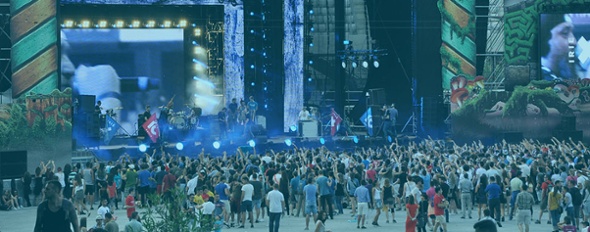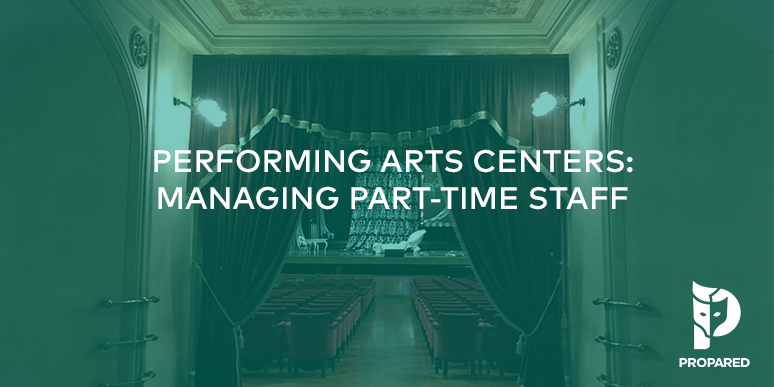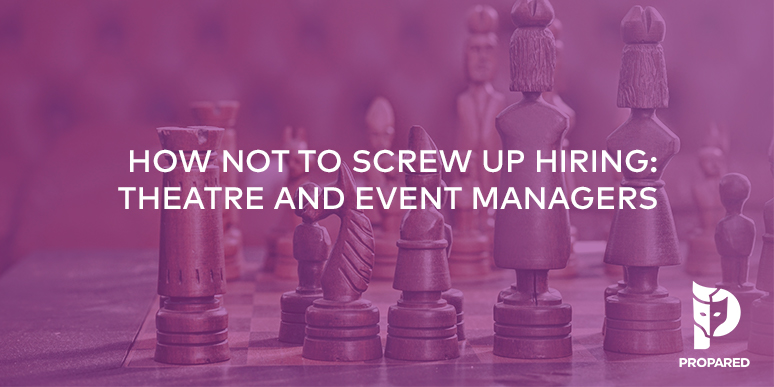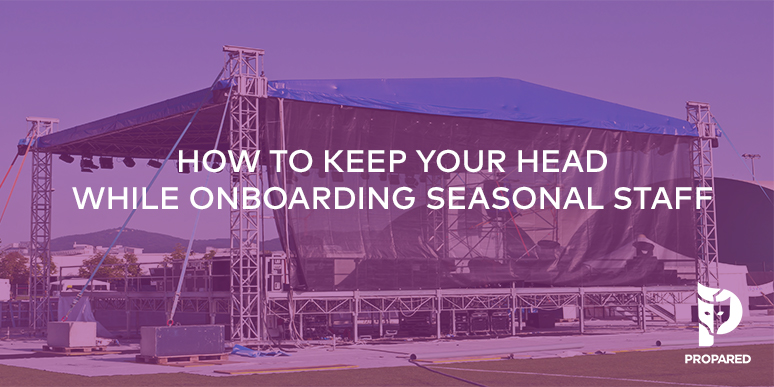
Managing a festival is a beast unto itself. Just ask the creators of Bonnaroo. And it doesn’t matter whether it is national, headline-grabbing music or small town fringe theatre. As the event point person, you must constantly balance the ONE vs. the MANY. I define them like this:
-
The ONE – The Festival itself. A single, massive project.
-
The Many – The Dozens, maybe hundreds of projects (activities, bands, speakers, exhibitors, classes, shows, etc.) that make up the Festival.
In my experience, when you’re doing one show, you can get by with a fairly inefficient process. Sure, you’ll bang your head against the wall from time to time, but with a few sleepless nights you can generally plow through it. Festivals, however, are a whole new ballgame. Due to the sheer volume and intricacy, managing a festival requires a well developed process for organizing and communicating. Here’s how I do it.
1. Train, Train, Train
I’ve got to lay this out first. If you’ve got years of experience, go ahead and skip this part. But if you are new to production management, I often recommend building up your work experience before taking on a festival. Could you jump right in to festivals and succeed? Of course you can. But in my experience, it has been immeasurably helpful to have developed a comfortable way of working within the industry first. Work on projects of varying complexity and structure to account for all the different types of activities you might encounter. Meet people that you can form relationships with and call upon when you need to build a festival team. Fashion event work is often a great primer. So are corporate live events. These will get you accustomed to many kinds of clients and expose you to many other professionals.
2. Understand the Structure
Take the ONE vs. MANY definition from above. Festivals are unique in that you are managing the event logistics of lots of projects housed inside of a bigger project. Each of the MANY has specific needs and must be treated singularly. But they also have to be managed as part of the ONE. Add in to the mix multiple venues and stages and the whole thing begins to swell. Begin by creating a priority list.
-
What Events represent the festival, rather than the Individual activities?
-
What projects fall under others?
-
What schedules should be planned first (i.e. individual events, venues, etc.)
Once you know what needs to be tackled first, you can begin to dive in to the details.
3. Team Utilization
If you do a lot of event planning, you’re likely comfortable working with multiple reps and points of contact. Festivals are similar but also add the dimension of how you assign roles to your internal team. But you always assign roles, right? Yes, but festival work is a whole other level of autonomy within your team. I’ve worked festivals where I might not see two of my fellow production managers for several days. We’re on opposite sides of town, overseeing load-ins at different venues. You’ve got to know how to match up your team’s skills with the needs of the venue or slate of activities. I’ll often poll my team to see who might be the best fit in each scenario. Some things I definitely want to know:
-
Work Styles: Who deals well with pressure vs. who needs a more organized/scheduled environment?
-
Existing Relationships: Does anyone on my team know any reps for the festival events?
-
Technical Specialities: Can I ensure I am Lending my team’s expertise where it is most needed?
4. Communication will be the life (or Death) of You
As with most event planning, there is a cardinal rule of festival management: don’t EVER try to do it all yourself. Even the smallest festival requires more work than any one person is capable of handling. This becomes tricky as you’ll often feel like the only way to make sure you know everything is if you’re the only one doing the talking and coordinating. Big mistake. Your internal communication process with your team is just as important as your communication with outside parties. Lay out who’s responsible for what and delegate. How will you stay abreast of a day’s happenings? That’s what end of day reports and (BRIEF) staff meetings are for.
5. Keep Your Work in One Place
Everyone has his or her own favorite tool for scribbling notes and reminders. With an event this intricate, you MUST get all those thoughts together in one place for everyone on the team to see. Insist that your team email you their notes as soon as they can while still fresh in their minds. Use a collaborative technology that everyone can access. Establish a single point of storage and collection to limit the potential mistake of missing important news or changes.
6. Create more Yous
Meaning cloning? No, not cloning. In fact, I don’t even mean it in the sense of hiring a bunch of folk who simply parrot your methods. I mean empower your people. Hire the best, put your trust in them, and then give them the freedom to make smart, independent decisions. The faith you put in them will come back to you tenfold. It will encourage them to keep you in the loop and represent you and the company to the best of their abilities. And to be honest, isn’t that even better than just creating other versions of yourself?
Festival management at its best is a crazy, glorious whirlwind and it can be some of the most rewarding work you’ll ever do. By building your experience, hiring the right people, strengthening your communication processes, and empowering your team, you’ll be ready for anything. Even the next Bonnaroo.
Do you manage festivals? Drop us a line in the comments below and share your experiences.



